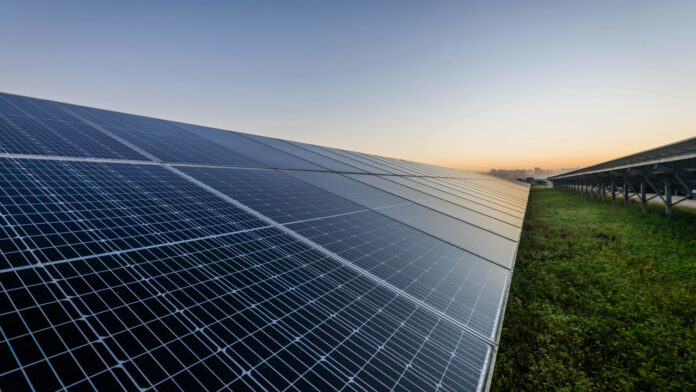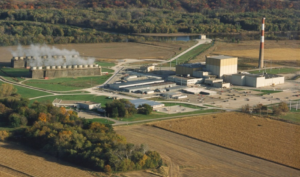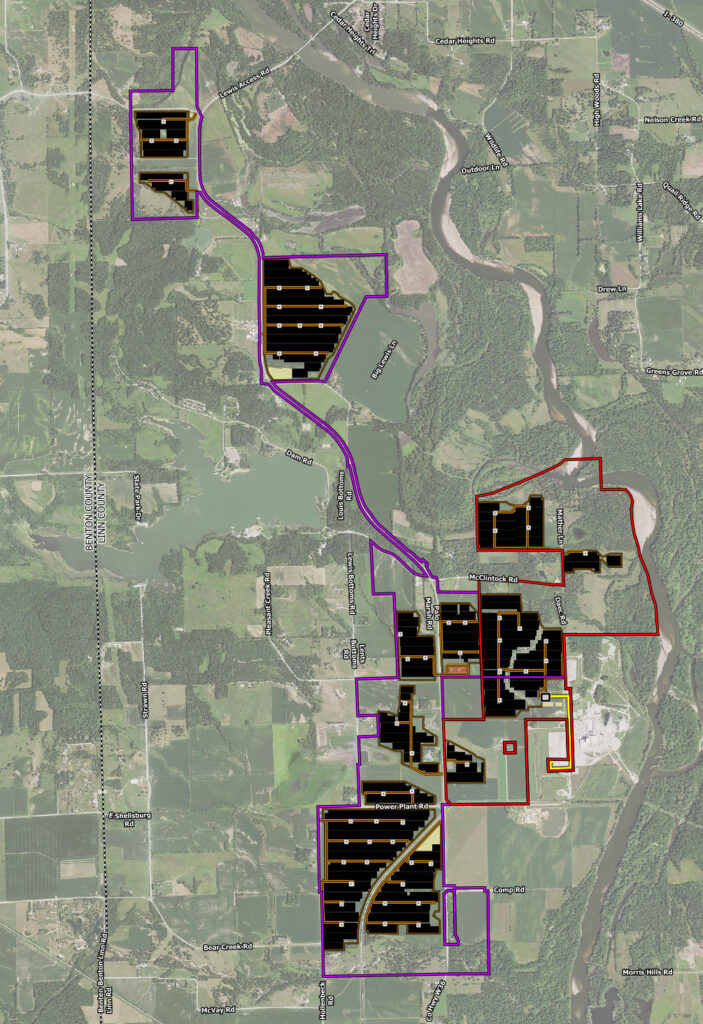
Linn County officials have scheduled public meetings of the Planning & Zoning Commission and the Board of Supervisors to review the Duane Arnold Solar I and II utility-scale solar projects.
The county’s Planning & Zoning Commission will meet Thursday, July 28 at 6 p.m., while the Board of Supervisors will hold a public hearing and first consideration of the applications Monday, Aug. 22 at 6 p.m. The supervisors will then meet for second and third consideration of the applications on Wednesday, Aug. 24 and Monday, Aug. 29, with each meeting beginning at 6 p.m.
All four meetings will be held at the Palo Community Center, 2800 Hollenbeck Road. The meetings will also be available via livestream.
All Board of Supervisors meetings will have two opportunities for public comment, at the beginning and end of each meeting. Comments at all four meetings will be time-limited. Public comments can be emailed in advance of each meeting to Planning & Development staff and will be summarized publicly at the meetings by Linn County staff.
Under the plan, formalized in November 2021 in a filing with the Iowa Utilities Board, Florida-based NextEra Energy Resources – which announced plans for the solar installation on the Duane Arnold site in March 2021 and have dubbed the project Duane Arnold Solar, with an office already open in Palo – will develop and install 200 megawatts of solar generation and a 75-megawatt battery energy storage facility near the former Duane Arnold nuclear plant, which is no longer in operation and is in the midst of a 60-year decommissioning process.

If approved by the county and the Iowa Utilities Board, the project would be constructed in two phases. Duane Arnold I is a proposed 50-megawatt solar energy project on approximately 316 acres of agricultural land within an 857-acre area project site in Linn County, while Duane Arnold II is a proposed 150-megawatt solar energy project and a 75-megawatt battery energy storage system on approximately 815 acres of largely agricultural land within a 1,780-acre area project site, also in Linn County.
Once completed, ownership of both projects would be transferred to Alliant Energy, through its subsidiary Interstate Power & Light Company (IPL), for ongoing operation.
The project is expected to be completed by the end of 2024 and would make Alliant the largest combined solar and battery storage operator in the state.
All utility-scale solar applicants in Linn County must undergo a review by the Technical Review Committee, the Planning & Zoning Commission, and three readings by the Board of Supervisors. The review process is designed to review all applications thoroughly against the development standards outlined in Linn County’s utility-scale solar ordinance. Additional standards may be imposed as part of the review process.
The county’s Technical Review Committee already met with developers May 19 to iron out details of the proposed project. A video recording of the meeting, as well as the application documents submitted by Duane Arnold Solar LLC, are available on Linn County’s website.
The Planning & Zoning Commission can take one of the following actions: Recommend approval of the application, recommend denial of the application, or table the application and request additional information. If the commission recommends approval, they can also recommend approval subject to additional standards. The Board of Supervisors can require the standards based on PZC recommendation, not require them, and/or impose additional standards. The PZC cannot impose additional standards, but they can recommend the Board of Supervisors do so.
The Board of Supervisors will consider the Duane Arnold Solar applications from Duane Arnold LLC and make a decision to deny or approve the rezoning based on the standards for review contained in Linn County’s Code of Ordinances.
The decision to deny or approve may be made at any of the three consideration meetings; however, final consideration and approval cannot occur until all three readings have occurred. The Board of Supervisors can decide to postpone the decision at the first or second consideration meetings. If, during any of the three readings, a majority of the board votes to reject the application, the application will not move forward.
All recommendations on the rezoning application, including the final decision by the Board of Supervisors, must be based on the development standards for utility-scale solar contained in Linn County’s Code of Ordinances section 107-117 (h). Additional standards may be imposed as part of the review process.
Requirements for the solar review process
All utility-scale solar projects require an application to rezone the area to be used for the solar installation to (RE) Renewable Energy Overlay Zoning District.
Once an applicant submits a utility-scale solar application to Linn County Planning & Development, the review process begins. This process is robust and includes benchmark reviews from the Technical Review Committee, Planning & Development staff, and the Planning & Zoning Commission before any application is presented to the Board of Supervisors.
The review process is the same for all utility-scale solar applicants:
Applicants must undergo a review by the Technical Review Committee (TRC), the Planning & Zoning Commission (PZC), and three readings by the Board of Supervisors. These are public meetings. The TRC meeting is open to the public but is not a public hearing (no public comments are taken). The PZC meeting is a public hearing where the public can comment on the application.
The Planning & Zoning Commission must consider the Technical Review Committee’s findings and staff recommendation of the application, and must consider the proposed rezoning during at least one public meeting before submitting its findings and recommendation of approval or denial on the application to the Board of Supervisors.
The supervisors will hold three public hearings for the rezoning request before making their final decision.
Linn County will notify the applicant and surrounding property owners of the date and time of the Planning & Zoning Commission meeting and public hearing and invite them to attend.
If approved, the Duane Arnold Solar projects would comprise the second utility-scale solar installation in Linn County. Concluding a lengthy and often contentious process, the board of supervisors voted 2-1 Jan. 24 to approve the third and final reading of a rezoning request for a utility-scale solar project west of Coggon.
The vote provided the final official approval needed for the $150 million, 750-acre Coggon Solar project to proceed. Officials from Boise, Idaho-based Clenera Energy, the company that will develop the 100-megawatt project, said after the meeting they’re planning to begin installing the solar panels for the project this spring or summer on land leased from area landowners, and expect the project to be operational about a year thereafter.





